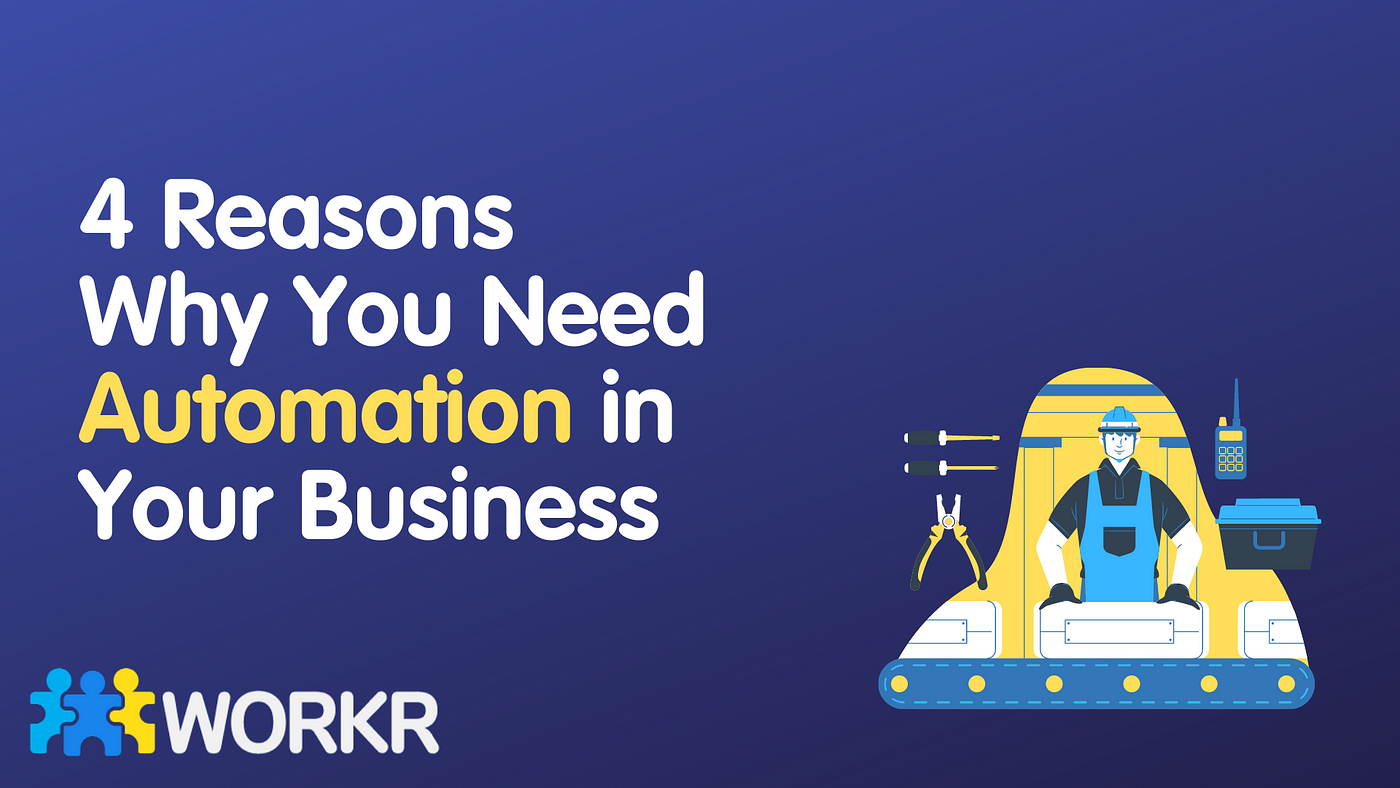Automation is the use of technology to make repeatable processes — such as data entry — automatic. It may sound complicated, but in business management, this could be something as simple as connecting timesheets to payroll or duplicating rosters.
As automation improves and becomes more common, the ability to have this kind of tool in your business is much less expensive than lots of business owners think. Even the smallest businesses need automation, and the market has recognised this with several affordable software solutions that provide automation — including WORKR.
With that said, only 25% of small businesses use automation in the running of their business, compared to 40% of large businesses.
So why should you be using automation in your business? Here are 4 reasons:
Increased productivity
The purpose of automation is to take manual, repetitive tasks off the hands of business owners and employees, and free them up to do other, more important things.
So the benefit of automation in terms of productivity is two-fold: the original tasks are performed faster, and more time can be spent on other activities.
Example: Sarah creates a roster every week for her team, which is the same each week (unless someone has put in annual leave). Sarah can automate the creation of the roster and make changes as they come up, rather than creating a new roster each week. Instead of spending 2hrs per week on the roster, Sarah can now spend as little as 0–15mins, while devoting the extra time she has to improving other areas of the business.
Reduced Costs
As workloads increase, the natural next step is to hire more employees. But before you do that, it’s worth taking a look at how much time can be saved through automation.
By reducing time spent on manual tasks, you can reduce your salary expenditure significantly. Given that salaries account for around 70% of total business costs, reducing the wage bill can help you grow your business through increased ROI.
Example: Sarah is spending too long on HR & payroll, but before hiring someone to do this, looks into automating the process through software. Through WORKR, she was able to sync up her employees’ roster, timesheets & payroll, significantly reducing her workload. She now doesn’t need to hire a part-time employee and can use this money on sales & marketing, helping to grow her business.
Improved Consistency
By using rule-based logic (i.e. ‘when X happens, do Y’), an automation will theoretically run the same way every single time. This is far more reliable than a manual process, because it reduces the ability for human error.
For repeatable and predictable results, automation helps to keep a team consistent. Whether it’s counting stock, calculating payroll or invoices, or printing shipping labels, automation removes the ability for human error, and allows employees more time to get the more complicated tasks right.
Example: Sarah noticed that her sales team were sometimes forgetting to mark invoices as paid, so she introduced automation to help remove the potential for human error. She now knows exactly when invoices have been paid, and doesn’t have to waste time chasing up customers who have already settled their bill.
Increased Compliance
Nobody wants a knock on the door from the Fair Work Ombudsman, but with the endless line of regulations, it can be tricky for those conducting manual compliance processes.
Automation helps connect businesses with industry regulations, and alert or amend practices that are failing to comply with the law.
Example: Sarah has several employees on different award rates. Some work casually, some full-time and many work overtime on Saturdays and Sundays. Instead of calculating payroll manually and wrongly inputting an award interpretation, Sarah uses WORKR’s payroll platform, which automatically applies the correct penalty rates to employees based on the activity noted on their timesheets. Sarah now has peace of mind, and her employees are paid correctly.
Want to see if automation can help your small business? Try WORKR for FREE for 30 Days!

How Automation Can Help Your Business
16 Feb 2022
